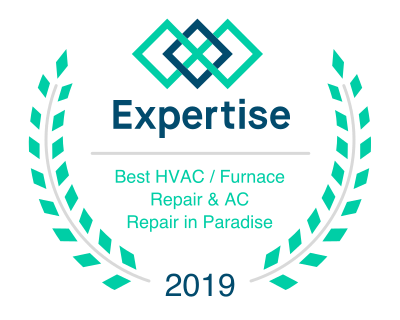There are a lot of things to consider when you’re purchasing a new residential property in Las Vegas, Nevada. From selecting the perfect paint colors to meticulously planning the furniture arrangement. However, certain features of the home, such as air conditioning, could have a larger impact on your future homeownership costs than you might expect.
While many home buyers don’t pay much attention to the HVAC system, the savvy ones recognize it as a crucial part of the house due to the scorching-hot summers of Las Vegas. A properly functioning air-conditioner not only ensures your comfort, but it also can save a considerable amount on utility bills in the long run. Thus, including a careful examination of the HVAC system, inclusive of the thermostat, filters, and ventilation mechanisms, is an important part of the service inspections when purchasing a new home.
HVAC Checkpoints When Buying a New Home
According to data released by the Department of Energy, the services of heating and cooling make up nearly 48 percent of the entire energy consumed in an average American home.
In the context of your new Las Vegas house, the HVAC system will be your largest energy expense. Hence, it’s worthwhile to conduct a thorough assessment before making an offer. Doing so can assist in creating a comfortable indoor environment and calculating future energy costs accurately.
Find the Locations of the Indoor and Outdoor Units
Initially, look for the indoor HVAC unit in your prospective home. If it’s located in the attic, there’s a possible risk of water leaks leading to expensive ceiling damage. Indoor units in other areas, however, pose a significantly lesser risk.
Assessing the outdoor condenser unit is also important. Check its proximity to the residential windows. The noise from an AC unit placed too close to bedroom windows, for instance, can be bothersome. Moreover, you should check the gutters above the condenser unit. Any damage or absence of gutters risks unit damage from water runoff, especially during Nevada’s rainy or cold seasons.
Check the HVAC Equipment
After you’ve identified the locations of the indoor and outdoor AC units, request the realtor to test the air conditioning service. Evaluate its cooling efficiency, and look for signs of damage on the equipment such as dents, cracks, or water stains. Unusual sounds like hissing or clanging could also indicate issues.
HVAC units older than 10 or 15 years require replacement soon. Depending on the house size, installing a new AC could cost thousands of dollars. If replacement becomes necessary, negotiate the home’s sale price to include some of the installation expense. However, avoid asking the current owner to replace the unit as it’ll void the manufacturer’s warranty.
Check the energy efficiency of the HVAC system. Ratings like the SEER, AFUE, and HSPF give an indication. Higher numbers mean lower energy costs.
Examine the Maintenance Records
Maintenance records for the HVAC system can reveal its condition over time. Regular preventative maintenance not just enhances performance, efficiency, and longevity of the unit but is also a requirement for maintaining the manufacturer’s warranty. If the requirement hasn’t been met, you could encounter frequent malfunctions and pay more for repairs after moving in.
Look at the Warranty
Consider the warranty on the HVAC system. The standard is five years from the installation date. Calculate the remaining warranty based on the installation year if the air-conditioner comes with a contractor’s warranty.
Inspect the Ductwork
Lastly, inspect the condition of the ductwork besides the HVAC equipment because it too influences the system’s overall performance and your comfort.As you observe the HVAC system in question, look for gaps, loose connections, and signs of condensation, which are indications that the ductwork needs to be repaired. If the ducts look dirty and dusty, it means the homeowner hasn’t been maintaining their system on a regular basis.
In such a scenario, our professional technicians would be at your service to provide a business-oriented solution. This could involve a replacement of the system after purchasing the home. That’s a problem, but remember, our service includes emergency replacement of the furnace or heat pump, so making an appointment for these services is only a call away.
If the house has an indoor air quality device such as an air purifier or dehumidifier, it’s a nice bonus. However, you should know that a humidifier can increase moisture levels in the home, which can promote mold growth. So, make sure you check the unit for water leaks and look around the house for mold.
If the air conditioner doesn’t come with a built-in indoor air quality device and the air quality in the home is poor, you may have to be prepared to invest in solutions like duct cleaning or indoor air quality add-ons. Our business stands ready to provide you with all the answers to your HVAC-related queries. Again, take all potential costs into consideration and ask for a discount on the price of the house.
Ask About Insulation
Home insulation is an important consideration as well. Ask about the type of insulation installed in the house and when the last update was done. Over time, insulation can settle and lose its effectiveness, leading to drafts or leaks. That means additional challenges for your HVAC system in maintaining a warm or cold temperature, resulting in higher energy bills. Don’t be shy about asking the homeowner when their furnace or heat pump last received maintenance or replacement parts.
Check the Refrigerant
Many old HVAC systems make use of a refrigerant called R-22, a substance now banned by the Environmental Protection Agency due to its detrimental effects on the environment. If the house you’re looking into relies on a system that uses R-22, you might be looking at added costs to replace the refrigerant as supplies dwindle.
Future homeowners should be aware that houses whose HVAC units use R-22 refrigerant will ultimately need a system replacement, which can significantly influence your budget. Take this expense into account before agreeing to any asking price.
Ask About the Utility Bills
Since heating and cooling account for about half of the energy costs in the average home, you can generally estimate the monthly cost of using the HVAC system by reviewing the homeowner’s recent utility bills. If the energy bills for the house you’re considering are noticeably higher than the average in the area, this could indicate an inefficient AC.
Issues can range from lack of maintenance to problematic ductwork, so scheduling a call for a professional HVAC inspection would be a smart move to identify any efficiency concerns.
When seriously considering buying a home, don’t hesitate to invest in a thorough HVAC inspection from a trusted company. It’s a small upfront cost that can save you the trouble of dealing with more expensive problems after the purchase. Don’t simply rely on the claims of the home seller or the realtor’s HVAC company. Make sure you reach out to an independent party for a second opinion.
HVAC Considerations When Buying a Newly Constructed Home
For those buying a newly constructed home, knowing how to choose an appropriate HVAC system is crucial. Selecting an air conditioner with the right capacity can increase comfort while keeping your energy bills low. If you’re purchasing from a mass commercial building company, don’t solely rely on their HVAC recommendations. It would be wiser to seek advice from a reputable HVAC company. Here are some pointers for selecting the right HVAC unit for your new home:
Get a Certified Technician to Perform a Load Calculation
Size matters when it comes to buying a new HVAC system. Installing an incorrectly sized unit can lead to myriad problems. Allow our technicians to guide you in understanding your home’s heating and cooling needs. All it takes is a call to schedule an appointment for your heat pump or furnace queries, and we’ll provide the answers you need to make an informed decision.
In a city like Las Vegas, NV, having a properly functioning air conditioning system isn’t just about comfort; it’s essential.
A system that’s too small will struggle to cool your entire space, experiencing additional strain that can result in mechanical issues and high utility bills. These issues can be a significant worry, especially when the heat is intense. Conversely, an overly large system tends to start up and shut down more frequently because it’ll reach its programmed temperature too quickly. This rapid cycling can lead to increased wear and tear on parts, making a professional HVAC company’s service all the more valuable.
To determine the right HVAC size for your new home, experts suggest that you hire an HVAC professional to perform a load calculation. This is a sophisticated and intricate process that involves more than just taking the square footage of your house into account. Our professionals will also consider the number of levels, number and sizes of rooms, number and types of windows, and insulation in the home, as well as general climate and orientation to the sun, all without an extra charge.
Choose the Right Type HVAC System
There are two main types of HVAC systems: central and ductless. Each of these options comes with their own unique logo, helping to differentiate their different functionalities. If you opt for a central air-conditioner, you’ll have to install air ducts throughout your home. Conversely, a ductless system consists of an outdoor condenser unit and individual air handlers that are attached to the walls inside the house.
A central HVAC system tends to run more quietly and produce cleaner air. It’s also more efficient in circulating conditioned air throughout your home. Alternatively, a ductless system allows for custom temperature settings in each room, known as zoning, which can prevent energy waste by maintaining a moderate temperature in unoccupied rooms.
Select Filtration
Consider your filtration needs when choosing your HVAC system. This consideration can lead to minimized airborne dust, pollen, pet dander, and other irritants, creating a healthier living environment. Make sure to discuss this with your HVAC professionals, especially if your home is filled with pets or people with allergies.
Different HVAC units may have different filtration capabilities. Our HVAC experts can help you determine whether a certain air-conditioner has adequate filtration capabilities to maintain good air quality in your home.
Consider Energy Efficiency
Energy-efficient HVAC systems might cost more upfront, but they’re definitely worth the extra money due to the significant savings they provide. The best thing to do, according to our seasoned professionals, is to get an HVAC unit with the Energy Star label.
Regardless of whether you’re buying a new home that has or doesn’t have an HVAC system, we recommend hiring our reputable air-conditioning contractor. The Cooling Company has helped numerous home buyers in Las Vegas create comfortable and energy-efficient homes, and we are ready to do the same for you. If you want to schedule a home-evaluation visit, feel free to contact us at (702) 567-0707.












